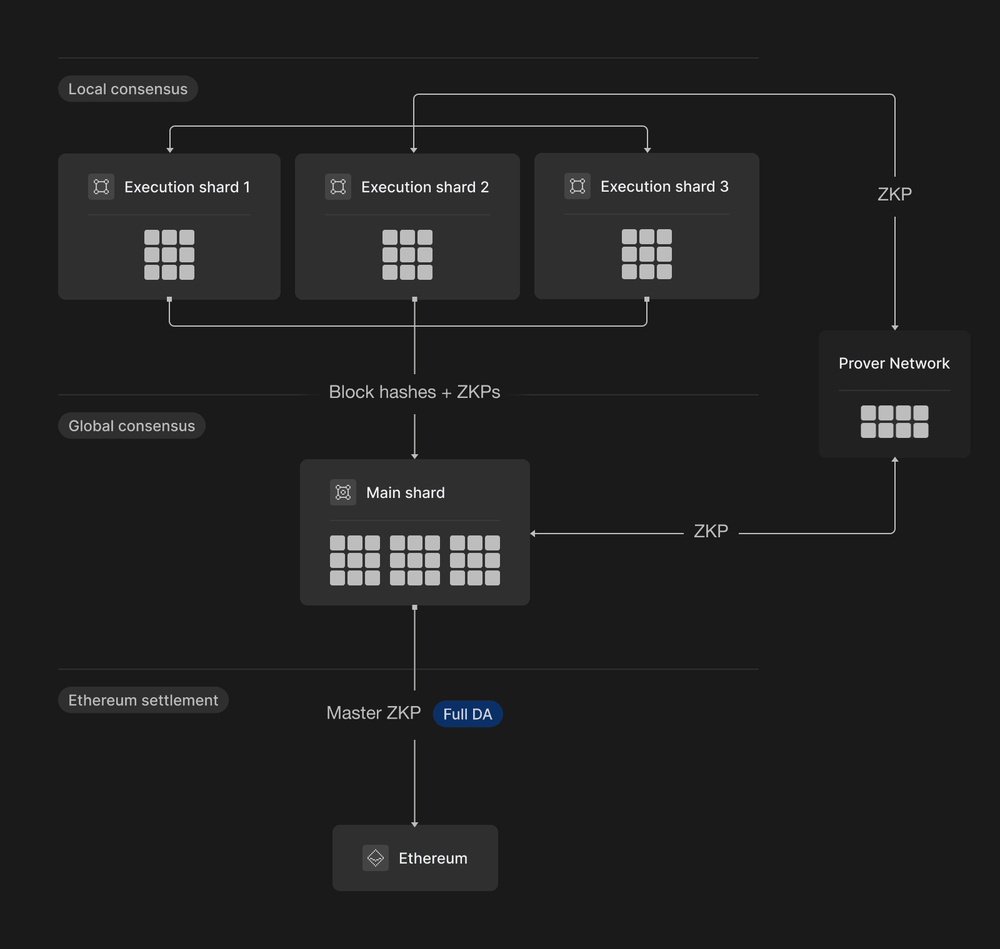Principles
This page offers a high-level explanation of the architecture of =nil;.
Flows
The following diagram shows how =nil; organizes execution shards, the main shard, the transfer of ZKPs, and communications with Ethereum.

Each execution shard is responsible for generating a ZKP for their respective state change. While ZKPs are generated, execution shards employ a protocol based on Sync HotStuff to reach consensus. Afterward, the proofs are verified via a HotStuff2-based global consensus protocol.
The main shard uses all received ZKPs to create a 'master' ZKP that is then transmitted to Ethereum. The global state of =nil; is verified and transactions reach finality.
Consensus shard
The consensus shard performs two essential functions:
- The shard stores and sets consensus rules and parameters
- The shard stores hashes of the most recent blocks from execution shards and ensures synchronization between execution shards
There is only one consensus shard in the cluster.
Execution shards
As implied by their name, execution shards process transactions.
Each shard is allocated with a subset of accounts from the global state. The shard is responsible for executing transactions made to and from these accounts. Consensus is handled by a committee of randomly selected validators.
Learn more about execution shards.
At the end of each epoch, a new set of validators is generated for each execution shard based on the Verifiable Secret Sharing (VSS) scheme.
Cross-shard communication
Instead of handling cross-shard communication via bridges (which are often insecure and unstable), =nil; integrates such communications in its protocol.
Each execution shard is tasked with surveying other execution shards and retrieving necessary transactions. A transaction is necessary for a shard if the shard holds the account that the transaction calls. Blocks within a shard are considered invalid unless they include all necessary messages.
Learn more about cross-shard communication or read our primer on async execution.
Contract placement
=nil; also allows participants to request for two or more accounts to be placed on the same shard.
This ensures that execution speeds remain high but may raise gas fees across the affected shard. Learn more about contract placement and its benefits.